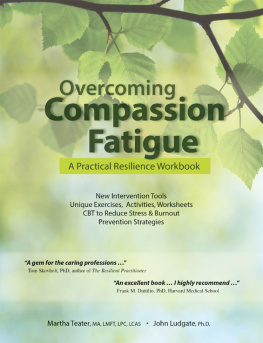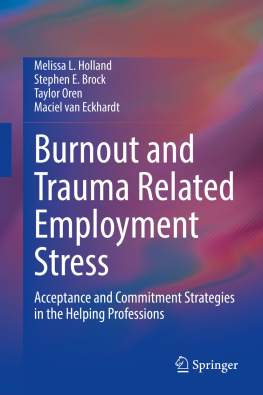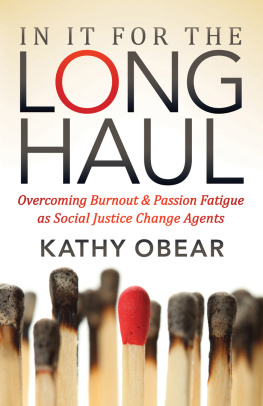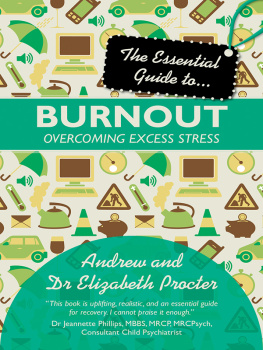Kate van Heugten - Social Work Under Pressure: How to Overcome Stress, Fatigue and Burnout in the Workplace
Here you can read online Kate van Heugten - Social Work Under Pressure: How to Overcome Stress, Fatigue and Burnout in the Workplace full text of the book (entire story) in english for free. Download pdf and epub, get meaning, cover and reviews about this ebook. year: 2011, publisher: Jessica Kingsley Publishers, genre: Politics. Description of the work, (preface) as well as reviews are available. Best literature library LitArk.com created for fans of good reading and offers a wide selection of genres:
Romance novel
Science fiction
Adventure
Detective
Science
History
Home and family
Prose
Art
Politics
Computer
Non-fiction
Religion
Business
Children
Humor
Choose a favorite category and find really read worthwhile books. Enjoy immersion in the world of imagination, feel the emotions of the characters or learn something new for yourself, make an fascinating discovery.

- Book:Social Work Under Pressure: How to Overcome Stress, Fatigue and Burnout in the Workplace
- Author:
- Publisher:Jessica Kingsley Publishers
- Genre:
- Year:2011
- Rating:5 / 5
- Favourites:Add to favourites
- Your mark:
Social Work Under Pressure: How to Overcome Stress, Fatigue and Burnout in the Workplace: summary, description and annotation
We offer to read an annotation, description, summary or preface (depends on what the author of the book "Social Work Under Pressure: How to Overcome Stress, Fatigue and Burnout in the Workplace" wrote himself). If you haven't found the necessary information about the book — write in the comments, we will try to find it.
Stress, fatigue and burnout are serious problems in the social work profession. High case loads, staff shortages, budget cuts and the challenging nature of the job contribute to high levels of stress, and social workers can crack under the pressure.
This accessible book demonstrates how managers and practitioners can overcome workplace distress, fatigue and burnout by understanding the causes and implementing practical strategies. Part 1 outlines how stress, fatigue, burnout and trauma can be identified, how they impact upon social workers, and what strategies can help. Part 2 explores stress in particular settings, covering frontline practice, working with trauma, working with aggressive service users, bullying and violence in the workplace, and making mistakes. The book is rooted in the reality of everyday social work, incorporating the views and experiences of practising social workers.
This book is full of techniques and tips that will be invaluable to all social work managers and practitioners seeking to beat workplace stress overload and burnout.
Kate van Heugten: author's other books
Who wrote Social Work Under Pressure: How to Overcome Stress, Fatigue and Burnout in the Workplace? Find out the surname, the name of the author of the book and a list of all author's works by series.









